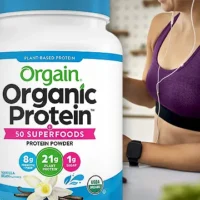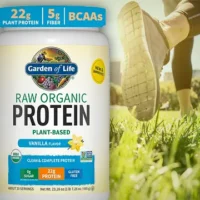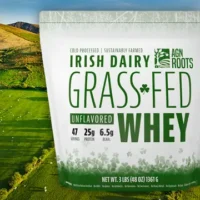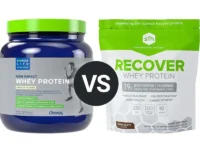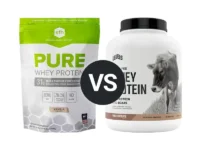Knowledge BaseYou're Questions Answered
Are there any potential downsides to using non-GMO protein powders?
Non-GMO protein powders are popular among consumers who prefer to avoid genetically modified organisms (GMOs) due to health, environmental, or ethical concerns. While non-GMO products are generally considered safe and are often chosen for their perceived naturalness, there are several potential downsides associated with their use. Below, we explore these potential drawbacks, including issues related to agricultural practices, certification, and the broader implications of non-GMO consumption.
Potential Downsides of Using Non-GMO Protein Powders
-
Increased Use of Pesticides and Herbicides
One concern with non-GMO crops is that they may require more pesticides and herbicides than genetically modified crops to achieve effective pest and weed control. Genetically modified crops are often engineered to be resistant to certain pests or herbicides, which can reduce the need for chemical applications. In contrast, non-GMO crops may not have these built-in protections, potentially leading to higher chemical usage. This can result in increased exposure to potentially harmful chemicals for farmers and surrounding communities, raising environmental and health concerns1.
-
Lower Yields and Increased Susceptibility to Challenges
Non-GMO crops may have lower yields compared to their genetically modified counterparts, which are often engineered for higher productivity. Additionally, non-GMO crops can be more vulnerable to disease, pests, and adverse weather conditions. These factors can lead to higher production costs and, consequently, higher prices for consumers who choose non-GMO protein powders. The increased cost can be a barrier for some consumers, particularly those on a tight budget2.
-
Lack of Standardized Definition and Certification
Currently, there is no universally accepted regulatory definition or standard for what constitutes a "non-GMO" product. While some products may carry a "non-GMO" label, this does not always guarantee that the product is free from genetically modified ingredients. Some companies may label their products as non-GMO even if they are not certified, or the products may be processed in facilities that handle genetically modified ingredients, leading to potential cross-contamination. This lack of clear standards can make it challenging for consumers to verify the authenticity of non-GMO claims3.
-
Uncertain Long-Term Health Effects
While non-GMO products are often chosen to avoid the potential risks associated with GMOs, it is important to acknowledge that the long-term health effects of consuming genetically modified foods are not yet fully understood. Some studies suggest that GMOs are safe for consumption, while others raise concerns about potential health and environmental impacts. This uncertainty extends to non-GMO products as well, as the absence of genetic modification does not inherently guarantee a product's safety or nutritional superiority4.
Considerations for Consumers
When choosing non-GMO protein powders, consumers should consider the potential benefits and drawbacks, including cost, environmental impact, and certification authenticity. It is advisable to look for third-party certifications, such as the Non-GMO Project Verified label, to ensure that the product meets established non-GMO standards. Additionally, understanding the broader agricultural practices and sourcing of ingredients can help consumers make informed decisions that align with their values and health priorities.
- Smith-Spangler, C., et al. (2012). Are organic foods safer or healthier than conventional alternatives?: a systematic review. Annals of Internal Medicine, 157(5), 348-366. doi: 10.7326/0003-4819-157-5-201209040-00007.
- U.S. Department of Agriculture. (2021). Agricultural biotechnology.
- Wunderlich, S., & Gatto, N. M. (2015). Consumer perceptions of non-genetically modified (GM) food labeling: An exploratory study. Appetite, 91, 329-335. doi: 10.1016/j.appet.2015.04.070.
- Qaim, M., & Kouser, S. (2013). Genetically modified crops and food security. PLoS One, 8(6), e64879.
Related Questions
Related Reviews
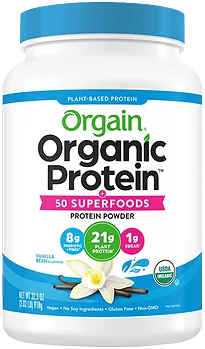
Your Answer
We are a participant in the Amazon Services LLC Associates Program, an affiliate advertising program designed to provide a means for us to earn fees by linking to Amazon.com and affiliated sites.
